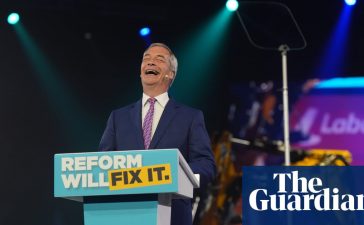King Charles III in Camberley, England.
Dan Kitwood | Getty Images Entertainment | Getty Images
LONDON — Britain’s King Charles III is set for a bumper £45 million ($58 million) pay raise after profits at the sovereign’s public estate more than doubled, according to official records.
Profits of the Crown Estate — a portion of which funds the monarchy — increased 148% from £443 million in 2022-23 to £1.1 billion ($1.4 billion) in 2023-24, an annual report showed Wednesday.
These bumper profits mean the taxpayer-funded Sovereign Grant, which supports the official duties of the King Charles-headed royal family, will rise more than 50% from £86.3 million in 2024-25 to £132 million ($171 million) during the following year.
The Crown Estate, the national portfolio of historical and commercial land holdings, is owned by the British monarch but managed independently and its revenues are given to the government. In exchange, the monarchy currently receives 12% of Crown Estate profits — a proportion calculated on funds two years in arrears.
The royal family had been receiving 25% of profits to fund their duties and renovations, but the household agreed with the government to revise down the figure last year in anticipation of the profit surge. Had the percentage not been reduced, the royal household would have received £275 million ($355 million).
The bumper results were derived primarily from the sale of options and leases on offshore wind projects on the seabed surrounding the British Isles, which is owned by the Crown Estate.
Dan Labbad, CEO of the Crown Estate, said the record results were due to decades of investment in offshore wind — sustainable energy being one of the king’s passion projects — as well as a “diverse and resilient” property and land portfolio.
“Today’s record results are the product of years of commitment and investment into helping create the UK’s world-leading offshore wind sector, as well as the active management of our diverse and resilient portfolio,” Labbad said in a statement.
Labbad also welcomed a forthcoming change in legislation, announced in last week’s King’s Speech, that would broaden the Crown Estate’s investment powers. He said that it would allow the estate “even greater impact in the long-term national interest, from supporting the UK’s decarbonised, energy secure future to nature recovery, regeneration and economic growth.”
Separate accounts were published Wednesday by Buckingham Palace showing the rundown of royal finances from April 1, 2023, to March 31, 2024 — in the king’s first full year of reign.
The king’s coronation, which took place May 6 last year, cost the Sovereign Grant a total of £800,000 ($1.03 million).
Staffing the royal household cost £27.9 million in the last financial year, while property maintenance was £47 million amid continued renovations of Buckingham Palace.
Travel expenses, meanwhile, came in at £4.2 million, with the king and queen’s four-day visit to Kenya last year costing £167,000.
The report also revealed that the royal household is to take delivery of two new helicopters in 2024-25 to replace its existing 15-year-old ones, while the king’s state Bentleys are to be converted to run on biofuel within the next year.
Correction: This article previously misstated how much the king’s coronation cost the Sovereign Grant.











